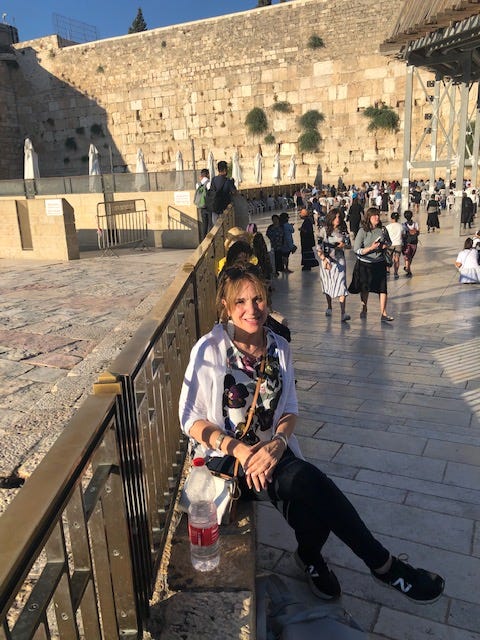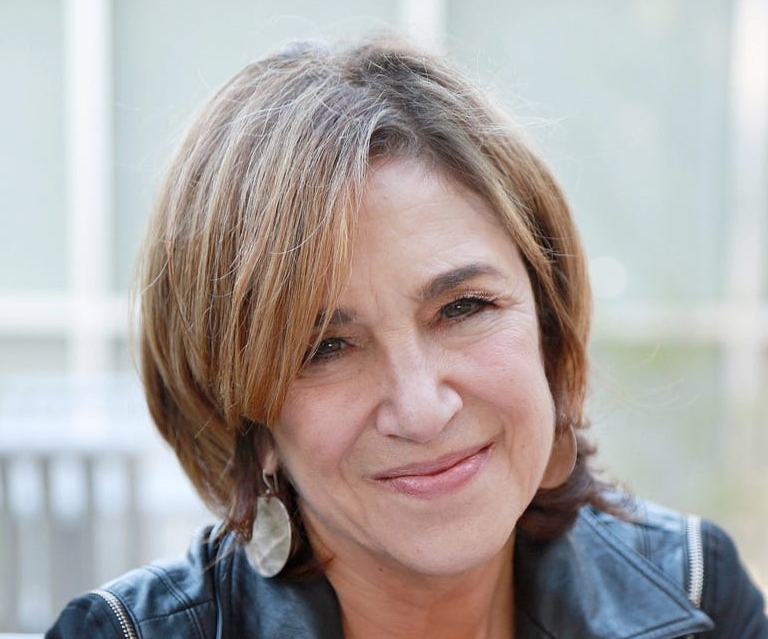Build a learning culture and a growth mindset. I encourage my clients to learn something new every day by investing in low-cost growth opportunities and constantly sharing their knowledge in staff meetings and communication programs such as Slack. Examples include courses and certificate programs from Coursera.com, digital and audiobooks from their local libraries, and listening to their favorite podcasts on their work breaks.
The number one leadership initiative in any organization today is improved coaching. Coaching empowers employees, empowerment drives engagement, and engagement drives performance. At its core, coaching is about transformation. Leading distributed teams requires transforming how we coach and changing our play calls and playbooks to get things done. As a part of our interview series called “Moving From Command & Control to Coaching & Collaboration; How Leaders and Managers Can Become Better Coaches,” we had the pleasure to interview Rhoda Weisman.
Rhoda Weisman is a Los Angeles-based coach, mentor and skill-builder specializing in organizations dedicated to the social good. As the Founder and Chief Creative Officer of Rhoda +Co, Rhoda is passionately devoted to developing purpose-driven and innovative leaders across the globe, challenging them to be more visionary and effective than they think possible. Rhoda has coached over 5,000 leaders and helped place more than 500 of them into meaningful career positions. She champions organizations to hire, train, retain, and leverage their best and most diverse talent.
Thank you for joining us to explore a critical inflection point in how we define leadership. Our readers would like to get to know you better. What was a defining moment that shaped who you are as a leader?
I was asked to interview for a position working with college students in a large university, the majority of whom were not actively involved in campus life. This would be my first job after completing grad school. I thought hard about what I believed could empower students to have a greater sense of meaning and purpose in their lives by being involved with their student activities outside of class such as volunteerism, student government, advocacy, faith communities, and more. When I spoke about what the vision was and how it could be achieved, I was offered the job almost immediately. I never forgot this lesson, that an inclusive vision with an implementation plan is the foundation of transformative leadership.
John C. Maxwell is credited with saying, “A leader is someone who knows the way, goes the way, and shows the way.” How do you embody that quote as a leader?
Wow, what a wonderful quote, thank you. I am a huge believer that we create a vision for everything we do, both big and small, and that it be based on our foundational values. The way to get there changes, of course, due to the circumstances. but the values upon which I lead don’t. First is always committing to a direction and following through on it with creativity, integrity, strength of character, kindness, and a dedication to excellence. Next, as leadership is not a solo sport, it demands that we bring others with us. This means treating everyone with inherent dignity, empowering them to utilize their skills, talents, and gifts with agency and grace, and being kind collaborators and co-creators simultaneously to reach our goals. And, finally, I am constantly evaluating to create excellent results internally and with the group: What’s working and how can we build on it? What gaps are we seeing and how can we fill them? And what isn’t working that we can change, strengthen, or rework? This cycle of leadership builds on itself in the best ways. It is alive, visible, and participatory, and creates a healthy and contagious culture that wonderful people want to be part of day after day, year after year.
How do you define the differences between a leader as a manager and a leader as a coach?
Leaders as managers ensure that the results they are working toward get done on time and with excellence as they problem-solve along the way to encourage collaboration and teamwork. Leaders as coaches are deeply dedicated to bringing out the very best of others in accomplishing a shared and purpose-driven vision. They utilize their empathy, skills, and values to provide consistent direction and feedback, address conflict with courage and understanding, and provide space for their talent to actualize their potential.
We started our conversation by noting that improved coaching is the number one leadership initiative in any organization today. What are some essential skills and competencies that leaders must have now to be better coaches?
The most important skill and competency is being an emotionally intelligent leader who strives daily to better understand themselves and others. This includes shaping thriving cultures of healthy communication and learning, and delivering results with creativity and kindness. A leader should have the ability to apologize, forgive and celebrate all along the way.
We’re all familiar with the adage, “You catch more flies with honey than with vinegar.” How are you inspiring — rather than mandating — leaders to invest in upskilling and reskilling?
First and foremost, a successful coaching leader is a learning leader who is always growing, evaluating, and encouraging themselves and their talent to be curious, strive for excellence, and be unafraid to make errors and change directions. That kind of leadership is highly inspirational and contagious. It makes others want to follow their lead in their own professional and personal self-growth. This is the nature of humans; we are social beings who lead and follow one another. The leader’s job is to provide a consistent array of positive and healthy learning opportunities for their talent to grow, and to gently insist that they utilize their learnings at work and teach them to be generous to others.

Let’s get more specific. How do you coach someone to do their best work? How can leaders coach for peak performance in our current context? What are your “Top 5 Ways That Leaders and Managers Can Be Effective Coaches?”
- Build a strength-based culture. There is a wonderful free online assessment, The High 5 Test, that provides customized results to every user. I teach my clients to utilize this assessment with their teams, share their results, and utilize and lean on one another’s strengths to be the best they can be.
- Build a learning culture and a growth mindset. I encourage my clients to learn something new every day by investing in low-cost growth opportunities and constantly sharing their knowledge in staff meetings and communication programs such as Slack. Examples include courses and certificate programs from Coursera.com, digital and audiobooks from their local libraries, and listening to their favorite podcasts on their work breaks.
- Compliment others on their efforts and results generously. Nothing is as motivating for purpose-driven leaders than positive feedback on their efforts. Coaching leaders, compliment your talent once a day on something that is observable. It will inspire them to continue to be their best.
- Apologize and forgive easily. These are probably the two hardest leadership behaviors to do and the most important ones to exemplify to others day in and day out. The most effective coaching leaders ask their talent how the relationship between them is going every one to two months. They also apologize calmly, with specifics for behaviors that have been hurtful or wrong. In addition, they commit to finding and using specific strategies that allow them to forgive and not hold a grudge. For me, that means speaking with my coaching leader and peer mentor about the person I need to forgive freely to express my feelings and asking for help in letting the hard stuff go.
- Always ask how people are doing, what’s working, what isn’t, and what changes will help them and their teams achieve excellence. Similar to above, every month when leaders bring their staff together, ask everyone these questions, create and use a consistent strategy together for addressing and leave with an implementation plan to try new behaviors/solutions. The following month, start with an evaluation of the strategies that worked and didn’t, and then move on to tackling a new challenge. This is a foundational exercise in creating a learning and healthy culture.
We’re leading and coaching in increasingly diverse organizations. And one aspect of workforce diversity on the rise is generational diversity. What advice would you offer about how to effectively coach a multi-generational workforce? And how do you activate the collective potential of a multi-generational workforce?
The challenges of coaching a multi-generational workforce are something I advise clients heavily on every day, as it has become a prevalent issue across many industries with the integration of Gen Z-ers into the workforce. Most often, the solution comes back to the concept of leading as a coach and practicing the mindsets we discussed above. Those in managing roles are often stuck in their traditional ways, failing to understand their talent may feel constricted or unheard. For example, a Millennial boss may perceive their Gen Z employee as lazy when they ask for a remote day, when in actuality they feel the most driven and undistracted in a less traditional work setting. Sometimes the solution is as simple as opening the floor to a genuine discussion in order to understand what talent identify as their values and strengths and to meet them halfway. I always encourage leaders to take the leap and try to fully understand their employees in order to truly activate their potential. A retreat is also a great way to step outside the workplace and into a mutual environment where everyone can see and hear one another differently.
You’re referring to emotional intelligence, in a sense. What are two steps every leader can take to demonstrate a higher level of emotional intelligence?
First, always be working on a strategy for improving one of the four areas of EQ: self-awareness, self-management; social awareness, and relationship management. And second, turn that strategy into a skill and integrate it into leadership. For example, I worked on stopping and being mindful of the emotion I was feeling before reacting for a year. Then the next year I worked on how to intentionally choose the response I wanted at the moment. The third year, I worked on making this a habit, and today, this habit is completely integrated into my leadership style and behavior every day.
Words matter. And we’re collectively creating a new leadership language right now. What are the most important words for leaders to use now?
Ask “How are you doing?” Then listen hard for the response. Follow up with empathy and curiosity, not judgment for what is heard. Then ask, “How can I be helpful to you? “ And, “What might that look like for you? I want to make sure to be as helpful as possible.”
I keep inspiring quotes on my desk. What’s your favorite “Life Lesson Quote,” and why does it mean so much to you?
The ancient Jewish sage Joshua ben Perahiah said: “When you judge anyone, tip the scale in their favor. Judge the whole of a person favorably.” When we assess another person, begin with their virtues. (from Pirkei Avot, which translates from Hebrew to “Ethics of Our Fathers”). Often, it is easy to judge simply on our interactions with and interpretations of others without accounting for the whole person. We should truly take time to reflect on others’ strengths and try to put ourselves in their shoes Often seeing their intent helps us come to a place of understanding and admiration. This is especially important for leaders to embody when creating a collaborative and supportive relationship that transcends differences.
Our readers often like to continue the conversation. What’s the best way for readers to connect with you and to stay current on what you’re discovering?
LinkedIn: https://www.linkedin.com/in/rhodaweisman/
Instagram: https://www.instagram.com/rhoda_weisman/
Facebook: https://www.facebook.com/rhoda.weisman
Twitter: https://twitter.com/rhodaweisman
Thank you for sharing your insights. We appreciate the gift of your time and wish you continued success and good health.


